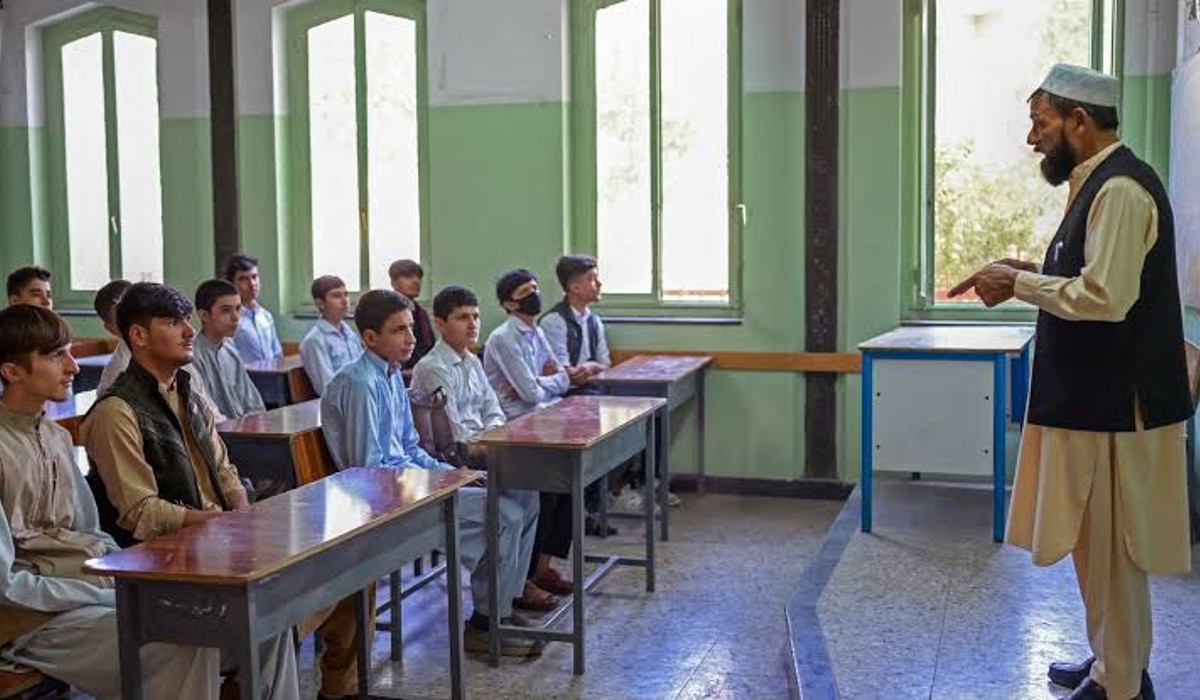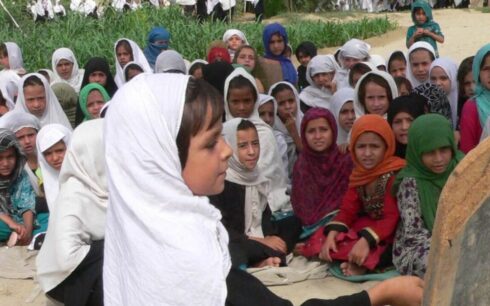Human Rights Watch (HRW) in a report released on Wednesday highlighted that the Taliban’s “draconian educational policies” in Afghanistan are adversely affecting not only girls and women but also boys.
The 19-page report titled “‘Schools are Failing Boys Too’: The Taliban’s Impact on Boys’ Education in Afghanistan” outlines the detrimental consequences of Taliban rule on boys’ education since their takeover in August 2021.
The report reveals Taliban policies jeopardizing education for Afghan boys, including the dismissal of female teachers, an upsurge in corporal punishment, and regressive changes to the curriculum. While the international spotlight has focused on the Taliban’s bans on secondary and higher education for girls and women, the severe harm inflicted on the education system for boys has received less attention, the report says.
The report says that these changes have led to increased fears about attending school, falling attendance, and a loss of hope for the future; with this, the Taliban risk creating a lost generation.
Concerned governments and UN agencies should urge the Taliban to end their discriminatory ban on girls’ education and to stop violating boys’ rights to quality education, the organization says.
“The Taliban are causing irreversible damage to the Afghan education system for boys as well as girls, risking the creation of a lost generation deprived of a quality education,” said Sahar Fetrat, assistant women’s rights researcher at Human Rights Watch and the report’s author.
The report draws from remote interviews conducted between June and August 2022 and March and April 2023 with 22 boys in grades 8 to 12, along with 5 parents in various provinces, including Kabul, Balkh, Herat, Farah, Parwan, Bamiyan, Nangarhar, and Daikundi.
The Taliban’s actions include the dismissal of all female teachers from boys’ schools, leading to boys being taught by unqualified teachers or even sitting in classrooms without instructors, according to the report.
The report documents an alarming increase in corporal punishment, with officials publicly beating boys for minor infractions.
According to the report, the Taliban has also eliminated subjects like arts, sports, English, and civic education, resulting in a decline in educational quality.
One grade 12 student lamented, “Out of 14 subjects, we [now] only have teachers for 7 subjects, and 7 subjects are not taught, including physics, biology, skills, computer, English, and art.”
The student added that private classes outside of school are necessary but unaffordable due to the dismissal of female teachers.
The changes instituted by the Taliban have instilled fear among boys attending school, leading to declining attendance and a loss of hope for the future, the report says.
The report reveals that economic and humanitarian crises have forced many boys to abandon school to support their families, exacerbating anxiety, depression, and other mental health issues in the absence of adequate mental health services.
While the Taliban has not explicitly banned boys’ education beyond sixth grade, the discriminatory policies are undermining access to education for all children, violating Afghanistan’s international obligations, the report says.
The report underscores the urgent need for an international response to address Afghanistan’s education crisis, urging the Taliban to end their discriminatory practices and uphold the right to safe and quality education for both boys and girls.





